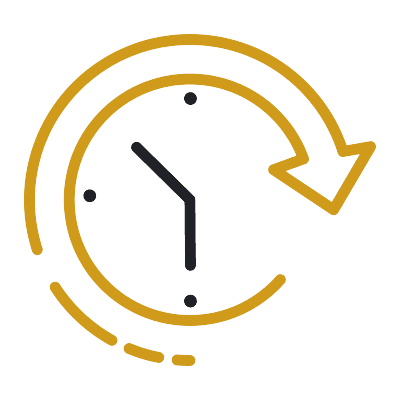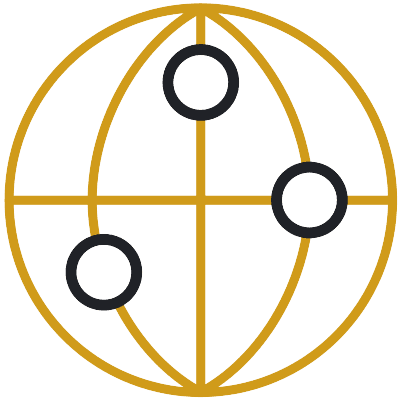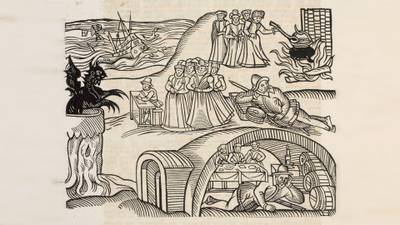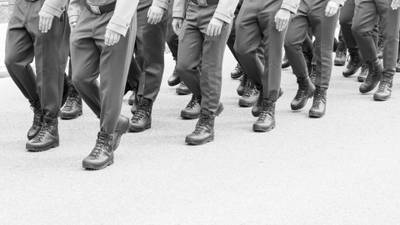Study peacebuilding and conflict resolution online.
Join us online to deepen your understanding of how sustainable peace is built.
In this Masters-level online short course, you’ll explore the key ideas, methods, and real-world practices that shape conflict resolution, peacemaking, and post-conflict peacebuilding.
With expert guidance, you’ll examine:
- the theoretical foundations of a range of approaches to conflict resolution
- peacemaking strategies – including negotiation, mediation, and intergroup dialogue
- innovations in peacebuilding – including truth-telling mechanisms, criminal tribunals, and reparations programmes.
Through a diverse range of case studies and contexts, you’ll take a comprehensive look at how conflict resolution plays out in the real world.
Who can join this online peacebuilding course?
This online short course is designed for students, graduates, and professionals seeking a deeper understanding of peacemaking and peacebuilding.
The course is ideal for professionals working in, or aspiring to work in:
- international relations, diplomacy, or humanitarian work
- peacebuilding and development organisations
- international justice, governance, or policymaking.

Build credits towards a Masters degree
This online course is part of online:
You can use the credits you earn with this short course towards this MSc qualification.
What you’ll study
In this course, you’ll learn about concepts and processes that are central to conflict resolution (also known as peacemaking), and post-conflict peacebuilding.
You’ll study topics including:
- Conflict, peace and justice: foundational concepts
- Principled negotiation: principles and challenges
- Traditional negotiation: hard bargaining
- Track II and third-party diplomacy
- Post-conflict amnesia: forgetting for peace
- The retributive approach: peace vs. justice, and the International Criminal Court (ICC)
- The restorative approach: reconciliation and dialogue
- New wars, reparations and distributive justice
- Local ownership and indigenous approaches
- Hybrid justice and modular peacebuilding.
Using real-world case studies throughout, you’ll consider complex challenges in peacemaking and peacebuilding through diverse global perspectives.
Content advice
This course will include some discussion of potentially sensitive material, including the forms of violence and injustice that occur in war. We have these discussions to equip you to approach such subjects with care and professionalism if they arise in your work.
We are an inclusive university that takes the pastoral care of our students seriously. The online classroom will be made a space to engage sensitively and empathetically with this content. Confidential and impartial support is also available from the Student Advice and Support Office.
By the end of this conflict resolution course, you’ll be able to...
-
Think creatively with regards to ending conflict and achieving sustainable peace.
-
Demonstrate knowledge of the principles of conflict resolution and peacebuilding.
-
Evaluate the factors giving rise to conflict.
-
Assess the primary means by which peace is achieved and peacebuilding and justice are attempted.
-
Discuss the core theories in the field of peace and conflict studies.
Choose the University of Aberdeen for online courses in peace and conflict studies

Fits around full-time work
This online course fits around work, with flexible hours and 24/7 study access.

Top 3 in Scotland for Politics and International Relations
We’re ranked 3rd in Scotland for both Politics and International Relations in the Guardian University Guide 2026.

You’re in expert hands
Founded in 1495, we’re an ancient UK university that’s been delivering online teaching for decades.
How you’ll study
Online learning
This distance-learning Peace and Conflict Studies course is delivered flexibly, 100% online.
You can learn with us anywhere in the world, no student visa required, and manage your study hours to suit you.
Your teaching
This course is taught at Masters level.
Teaching is delivered through MyAberdeen, our online Virtual Learning Environment (VLE). It holds all the materials, tools and support you’ll need in your studies. Take a look around MyAberdeen.
You can access your learning materials on computer, smartphone and laptop, 24 hours a day. You’ll find a range of resources available, including:
- videos
- recorded video lectures
- live online session
- reading materials
- discussion boards with your tutors and peers
- the online resources of our award-winning Sir Duncan Rice Library.
Live online teaching
One live online session will be arranged for this course where you can ask your tutor questions and discuss the course material. Depending on the class size, this could be one-to-one or a group session.
Your tutors
This course is delivered by the School of Social Science.
You’ll learn from expert academics with strong research credentials in this field.
This course is assessed online.
You’ll be assessed throughout this course via:
- two short writing assignments (worth 60% of your final course grade)
- your contribution to a blog/discussion board (30%)
- an online quiz (10%).
This course totals approximately 300 hours of study and assessment time.
That’s around 15 – 20 hours per week in regular topic work and independent study, with more time required around assessments.
This is an indicative guide to the time required for a typical student at this level to achieve the learning outcomes. This includes time for independent study, as well as teaching and assessments.
You can largely set your own study hours to cover the materials. MyAberdeen is available 24/7, so you can log in and study when it suits you.
Activities at fixed times
There may be some activities scheduled at fixed times, such as online meetings with your tutor or assessments with deadlines. But otherwise, you can access and work through the course at your convenience.
Our first-class support structure will ensure that you aren’t alone in your studies.
You’ll have contact with your coordinator via email, MyAberdeen, Microsoft Teams, or phone. You can use social media and discussion boards to chat with your fellow students too.
We provide a wide range of services to support you in your studies and beyond:
- Careers and Employability Service
- Disability support
- IT support
- Library support
- Student Support Service – help with finances, wellbeing and non-academic issues
- Student Learning Service – study support, with advice sessions available
- Aberdeen University Students’ Association (AUSA) – run by students for students
- Toolkit – clever apps and free training that can make your study life easier
Wherever you are in the world, you’ll feel part of our very special Aberdeen learning community.
Your course coordinator

Professor Gearoid Millar
Gearoid is Chair in Peace and Conflict Studies in our School of Social Sciences.
He specialises in post-conflict justice, peacebuilding, and ethnographic methods.
Gearoid teaches courses on policy evaluation, peace studies, and transitional societies, and supervises PhD research on global peace and conflict studies.
View Gearoid’s profileWhere this will take you
Towards a Masters
You’ll earn 30 credits at Masters level (SCQF Level 11) with this course. You can use these credits towards our online:

Masters in International Relations
Develop a deep, critical understanding of contemporary global challenges, power structures, and the evolving nature of international politics.
View MSc International RelationsCareers in peacemaking and peacebuilding
You’ll leave this course with a deeper understanding of foundational theories, debates, and methodologies in the field of peace and conflict studies.
The knowledge and skills you’ll gain are particularly valuable for careers in:
- diplomacy
- international development, or
- conflict resolution.
This could be within organisations like the United Nations, government agencies, or non-governmental organisations (NGOs).
The course can also help you to progress within or towards roles in:
- mediation
- humanitarian assistance
- post-conflict reconstruction
- transitional justice, including truth commissions, criminal tribunals, and reparations programmes, as well as
- further academic study in peace and conflict studies.
Continuing Professional Development (CPD)
Your employer or professional institute may recognise this course for CPD hours. Talk to your employer or institute to find out more.

Free career support
Access our free careers service while you study.
- 1:1 appointments
- CV checks
- Interview prep
- Job opportunities
Choose the University of Aberdeen for flexible online short courses

Learn anywhere
On smartphone, desktop and laptop, with no need for a student visa.

Flexible
Flexible hours and 24/7 access, so you can study when it suits you.

20% alumni discount
University of Aberdeen alumni get 20% off fees for this online course.
Entry requirements
Entry requirements
We welcome students from all over the world.
This course has no formal entry requirements. You do not need to provide proof of your qualifications.
But you do need to check the entry guidance above to understand the level of teaching delivered, to decide if this course is right for you.
If you do not have qualifications from the UK, check the equivalent teaching level for your country.
Visa requirements
You do not need a student visa to study online with us.
English language requirements
Teaching is delivered in English.
You do not have to provide proof of your English language skills to join this course. But we want to make sure that you can use English well enough to study successfully.
Recommended level of English
This course uses our Postgraduate Higher level of English language proficiency.
These are our Postgraduate Higher requirements, and these are minimum scores.
IELTS Academic, IELTS UKVI Academic, or IELTS Online (not IELTS Indicator or IELTS General Training)
- 6.5 overall
- 5.5 for listening and speaking
- 6.0 for reading and writing
TOEFL iBT or TOEFL iBT Home Edition
- 90 overall
- 17 for listening
- 21 for reading
- 20 for speaking
- 21 for writing
- TOEFL DI code is 0818
Cambridge English: B2 First, C1 Advanced, or C2 Proficiency
- 176 overall
- 162 for listening and speaking
- 169 for reading and writing
LanguageCert Academic / LanguageCert Academic SELT
- 70 overall
- 60 for listening and speaking
- 65 for reading and writing
Oxford ELLT Digital – English Language Level Test Online
- 7.0 overall
- 5.0 for listening and speaking
- 6.0 for reading and writing
PTE Academic (online test not accepted)
- 62 overall
- 59 for listening, reading, speaking and writing
Skills for English: SELT
- B2 pass with merit
Duolingo – tests taken from 1 July 2024 onward
- 120 overall
- 95 for listening and speaking
- 105 for reading and writing
University of Aberdeen English Pre-sessional Programme (PSE)
- Pass
- Valid for one year. Refresher can be offered if out of date
Pre-sessional academic English preparation programmes undertaken at other UK universities
- Pass at an equivalent of 6.5 (C1)
- B2 in all four skills
- Certification must be within one year prior to the start of your course
For more information about language qualifications see our English Language Requirements page.
When you study with us, you can expect a first-class support structure so that you’re never alone in your studies.
But learning online does mean you have to motivate yourself and manage your own time.
Your most important commitment will be time – the time to work through, reflect on and understand your teaching materials.
Before you start a course that involves a high degree of independent study, we recommend looking at the time you will be able to devote to your studies each week:
- Be realistic
- Create a weekly schedule as a guide
If you have any questions about studying online, get in touch with our friendly team. We’re here to help.
You will need access to:
A computer (PC, laptop or Mac) with an up-to-date operating system
Most teaching materials are smartphone- and tablet-friendly. But we recommend a proper laptop or desktop for completing assignments comfortably.
Reliable internet access
We recommend:
- a wired connection
- a minimum download speed of 2 Mbps so you can take part fully in live sessions.
Speakers or headphones
- We recommend a headset with built-in microphone and earphones if you’re likely to study in an environment with background noise.
- A webcam is optional, but you may like to use one for some interactive sessions.
Software
We’ll give you access to Office365 applications. This means you can use online versions of Microsoft Word, Excel, PowerPoint and OneDrive and install these programs on up to five personal devices.
If your course requires specialist software, we’ll provide you with access to this and a licence that lasts throughout your studies.
See our detailed IT requirements for more information.
Fee payment
Your course fee needs to be paid in full before you start your course.
We accept payment via Visa Debit, Visa Credit and Mastercard.
Ways to save
You may be able to get help funding this course via:
- discounts – if any discounts are available for this course, they’ll appear in the section below
- employer sponsorship – we accept full and partial fee payments from sponsors.
Find out more about funding options.
Student card
All our students are entitled to a University of Aberdeen student card. This gives you access to a range of student discounts around the city and online.
Learning resources
Access to all the essential books and resources you need are included in your tuition fee. They’ll be made available to you online and you do not have to buy your own copies.
We also provide optional recommended reading lists. Many of these resources are available electronically through our library, although purchases may be required if you wish to read the full list.
Printing
You may want to set aside a small budget for printing, depending on how you like to work.
This course has no formal entry requirements. You decide if it’s suitable for you.
The course is delivered at Masters level. At this level, you’d usually have at least:
- a 2:2 UK honours degree (or equivalent) in any discipline, or
- relevant professional experience that supports this level of learning.































